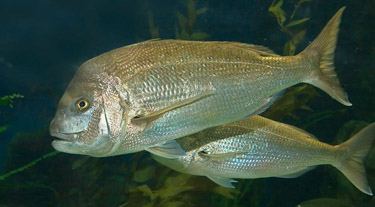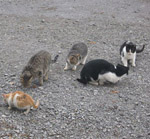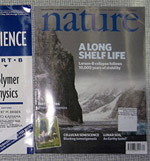Protected areas change fish behavior, study suggests
 Fish,
Fish,  Marine,
Marine,  Protected Areas
Protected Areas  Australasian snapper (Chrysophrys auratus). Credit, Fir0002/Flagstaffotos. Image released under the GFDL License.
Australasian snapper (Chrysophrys auratus). Credit, Fir0002/Flagstaffotos. Image released under the GFDL License.
Individual snapper fish tagged in a no-fishing area of the ocean tended to live within a smaller home range than snappers tagged outside the reserve, some of which traveled relatively long distances, according to a new article in Biological Conservation.
The findings suggest that some animals may behave differently in marine protected areas than they do outside, which could affect how much their populations recover after establishment of no-take areas of the ocean.
Although the study did not reveal the reason for the apparent behavioral change by the snapper, the authors propose a few possible explanations and describe how such behavioral changes may be significant to resource managers involved in designing new marine protected areas.
Darren Parsons, Mark Morrison, and Matthew Slater carried out their research at Leigh Marine Reserve on the northeastern coast of New Zealand. Inside and outside the marine reserve, they caught a total of 39 snapper (Pagrus auratus) and tagged each with an acoustic transmitter.
The transmitters enabled the scientists to track the fishes' travels with an array of hydrophones, which were moored in a grid pattern in the surrounding waters. They tracked the fishes from November 2007 to January 2008, when some of the hydrophones stopped functioning.
Parsons and his collaborators discovered that travel habits of resident snapper differed between the two areas. All of those tagged inside the marine reserve had small home ranges that averaged 903 meters long. Only half of the resident snapper tagged outside the marine reserve, however, had comparably small home ranges. The other half had large home ranges, averaging 2,100 meters in length.
Why did resident fish tagged outside the reserve travel so much further? Why did fish inside the reserve stay confined to such small areas? The study was not designed to answer these questions, but the researchers present a few possible explanations.
Kelp and other macroalgae grow more densely inside the marine reserve, which may enable snapper to find sufficient food and shelter within a small area. Alternatively, fishing pressure outside the reserve might tend to remove the more sedentary individuals, leaving the more mobile ones behind; snapper inside the reserve would not be subject to this pressure.
This small study does raise interesting questions about marine reserves and fish behavior, but the small number of tagged fish, the lack of replication of study sites, and the short duration of the study make it difficult to be sure if the results are a fluke or a meaningful pattern.
Even so, it adds an interesting dimension to the widely accepted notion that species do not respond uniformly to the establishment of marine reserves.
It may be important for resource managers to consider the travel habits of species that they want to protect in marine reserves because small reserves may provide adequate protection for species with small home ranges, but not those with large home ranges. And even within a species, marine reserves might provide different levels of protection for individuals with different behavioral patterns.
by Peter Taylor
Parsons, D., Morrison, M., & Slater, M. (2010). Responses to marine reserves: Decreased dispersion of the sparid Pagrus auratus (snapper) Biological Conservation DOI: 10.1016/j.biocon.2010.05.009




Reader Comments